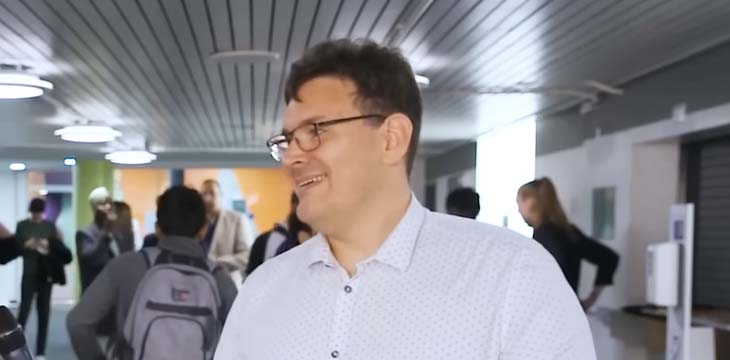|
Getting your Trinity Audio player ready...
|
Brendan Lee is one of the Bitcoin SV enthusiasts who talk about Bitcoin not just as a speculative asset but because of its utility beyond the HODL attitude. Lee, the founder of Elas, was at the IEEE Blockchain Event at the University of Exeter to discuss the Bitcoin white paper, IPv6, Bitcoin, and their ongoing projects in the space.
After his presentation, Lee talked to CoinGeek Backstage reporter Becky Liggero about why people should think of Bitcoin as a ledger instead of a coin or a store of value. Lee emphasized that owning a token isn’t the main game of Bitcoin. Yes, you can possibly get rich with it, but building an application with more value generates the most revenue.
“It’s about learning how to apply those tokens into an application and create something that has even more value—potentially hundreds or thousands of times more value than the underlying tokens themselves. I expect that within a decade, the value of the objects being managed on the Bitcoin ledger will be a multiple like a hundred or a thousand off the actual value of the Bitcoin satoshis that are on the blockchain,” he said.
Lee also shared their work within the industry, such as the Tuvalu project with Faiā and nChain, which started in 2020.
“In a place like Tuvalu that has a paper-based system but doesn’t have any trees, the use of paper is like a bit of friction on their economy. It costs a lot of money. So [we’re] trying to look at ways to minimize that use of paper or remove it entirely and speed up the delivery of those services and to enhance the outcomes of the people who live in Tuvalu without completely disrupting the process,” he explained.
“We’re here to make the process work much faster, much quicker, much more cheaply so that people can get on with business,” he noted.
Another project that Elas and Lee are working on is Tokenized Gold with an Australian company, Amleh Gold. Lee revealed that the idea for this project is to enable corporations to manage gold resources by building tokenized ownership records, potentially buying and selling them in the market, with an option to create a gold-backed currency in the BSV blockchain.
One of the themes at the IEEE in Exeter event was empowering businesses and people with IPv6 and blockchain; Liggero asked Lee how Elas allows this to happen.
“[Blockchain is] here to be a tool for them to improve the capacity of their departments and their systems to handle the demands of the people. And it’s not by destroying the system that we empower people; it’s by improving the system and making the system work ten times better and finding ways to optimize the processes that are being developed,” he replied.
As for teaching the university students of Exeter about the fundamentals of Bitcoin and blockchain, Lee said that the first step is to study its foundation—the Bitcoin white paper.
“First thing is to go through the Bitcoin white paper section by section,” Lee remarked. “I think the Bitcoin white paper is one of the most misunderstood documents of the last couple of decades…What we’re trying to do is to help them [students] to understand it in a way that will allow them to build things…improve the systems or create all new systems that are ten times better than the ones that we use today,” he said.
Watch: Elas: Creating private, permissioned ledgers on the public blockchain

 02-15-2026
02-15-2026 




